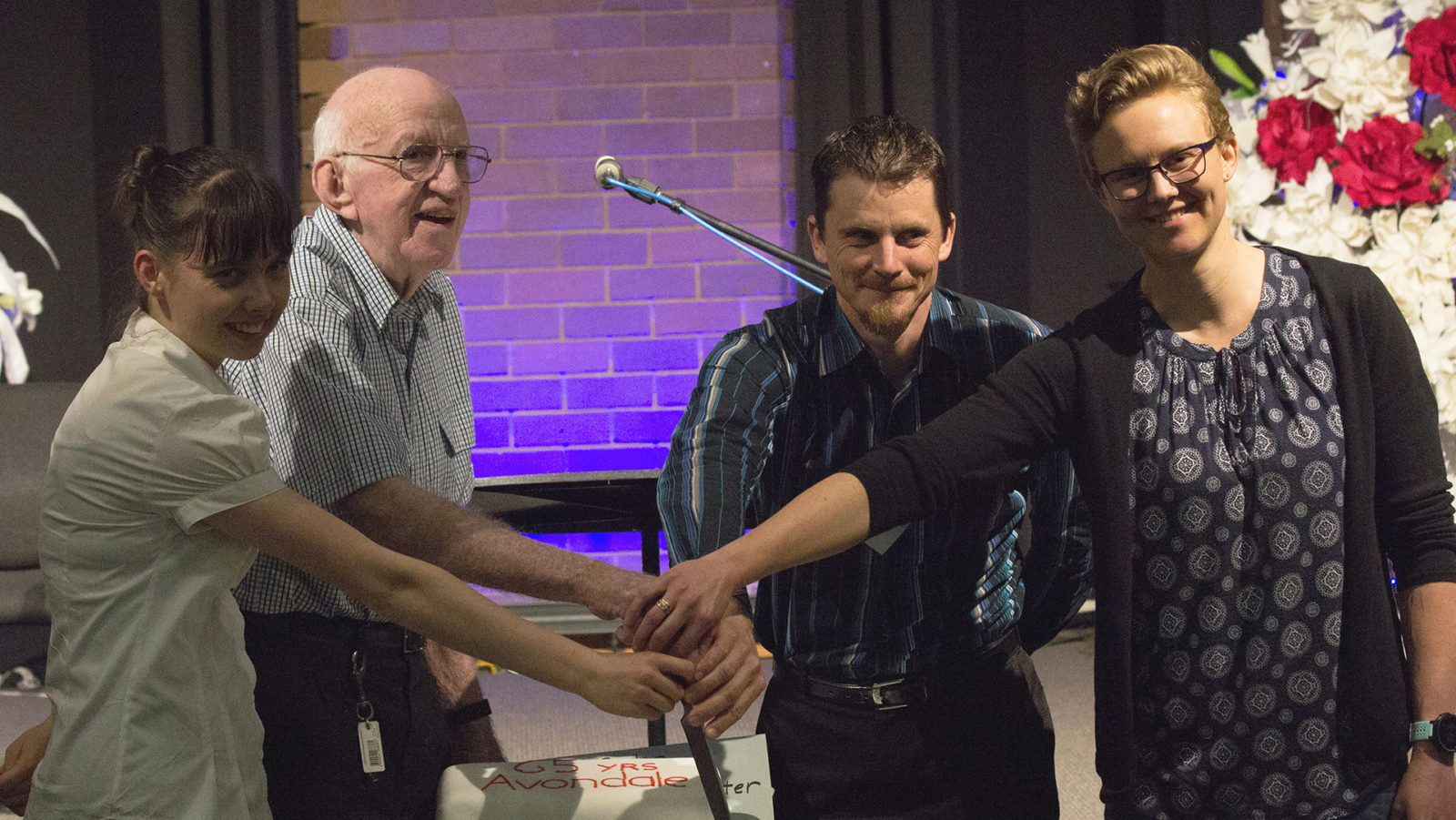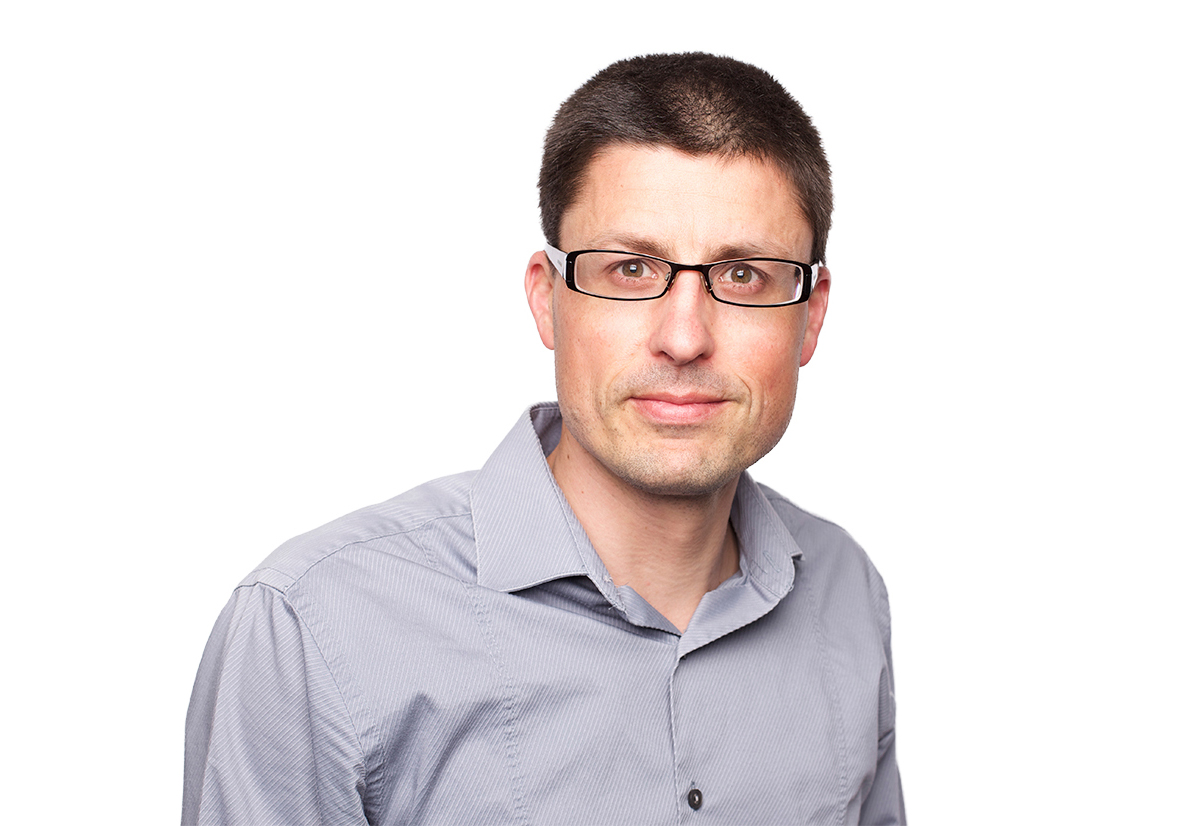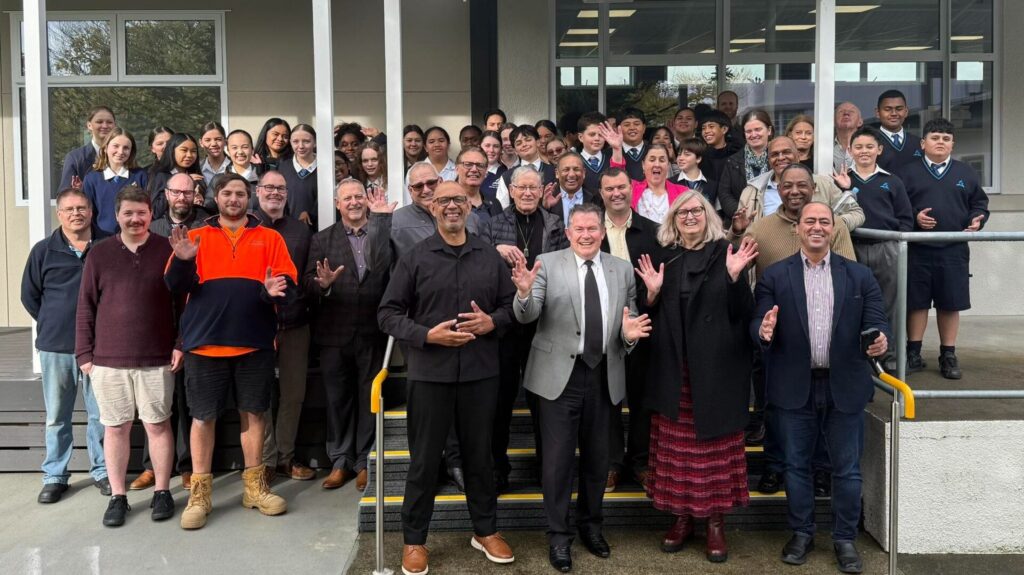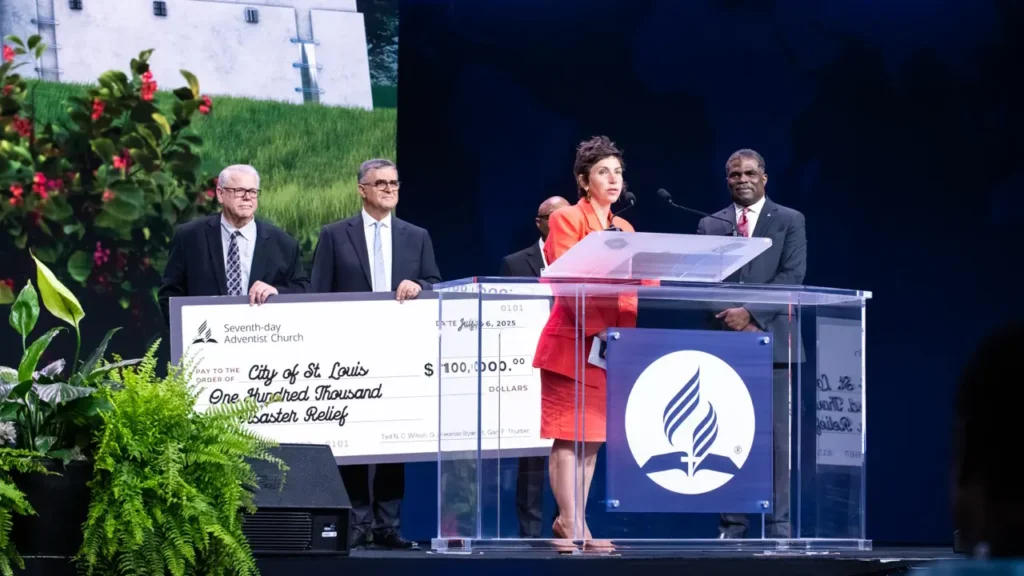Avondale alumni have reflected on how science intersects, informs and even enhances their faith at a reunion that focused on the past and the future.
A degree offered initially through London University that the first student completed in 1953 is now a discipline with about 450 graduates. One of the first three featured as a guest of the 65 Years of Science at Avondale Reunion, held on the college of higher education’s Lake Macquarie campus, October 26-27.
Dr Laurie Draper joined younger alumni to cut a large pendulum-shaped cake during the weekend’s final event, a banquet. He and classmate Dr Ken Thomson, who attended the morning services, graduated a year after the late Professor Eric Magnusson.
Asked during an interview how he dealt with issues at the interface of science and Seventh-day Adventism, Draper first mentioned Magnusson’s return to Avondale. Now with PhDs in chemistry from what is now the University of New South Wales and the University of London, Magnusson headed science at Avondale between 1961 and 1970 then served as principal between 1971 and 1980. Being the first significant Adventist scientist appointed as an faculty member at Avondale “set him up to be the champion to defend the Church’s position,” said Draper. “He thereby faced a fearful dilemma: loyalty to current Adventist Bible understanding or a commitment to intellectual honesty.” The two—Draper would serve first as departmental head and then as academic dean—frequently discussed how to “honourably handle the divided opinion”.
“Eric always conducted himself with dignity and grace even on occasions when he was being harshly challenged by people who know vastly less than he did.”
“What has science done to my faith?” asked Australasian Research Institute head Dr Ross Grant during his reflection at vespers the night before. A biochemical pharmacologist in the School of Medical Sciences at the University of New South Wales and a clinical associate professor in Medicine at The University of Sydney’s Sydney Adventist Hospital Clinical School, Grant said “while God can’t be empirically proven, a logical conclusion points strongly to an external, authoritative, creative force.”
Earlier, Natalie Rogers, head of Science at Wahroonga Adventist School, and her contemporary Clinton Jackson, from Brisbane Adventist College, spoke about their Avondale experiences. “I learned that the life of the mind is not incompatible with faith,” said Jackson, “unity of mission was not the same as a uniformity of thought” and “you can be faithful and still disagree”.
Professor Bruce Lo, now retired, addressed in his worship service sermon the tension between faith and science, suggesting six ways to deal with it: acknowledge the complimentary nature of the fields; respect honest knowledge seekers; note the validity of other arguments; self-assess; acknowledge doubt; and ask questions.
The reading of life sketches during the Friday evening and Saturday morning services honoured seven notable alumni—Ken Chapman, Dr Sid Cole, Graham Blackburn, Magnusson, Dr Richard Pearce, Professor Bruce Waldrip and Keith Wallace—and their contribution to church, college and community.
A spreadsheet attendees completed over the weekend measured service in years and in degrees of science alumni. Some 1000 years as secondary teachers in Seventh-day Adventist schools and almost 340 as departmental head and about 140 as principal in those schools. In the tertiary sector, alum earned 37 PhD and 7 master’s degrees in science disciplines and 11 in other disciplines. Those degrees were useful, with 345 years of service as lecturers and 10 as president at Avondale and 214 years elsewhere. Sanitarium Health and Wellbeing benefitted from the expertise of graduates, who gave the entity almost 365 years of service.
The banquet launched the Million Dollar Science Fund, which will help: support staff as they seek to increase the discipline’s research record; support students through a scholarship; purchase and upgrade essential equipment; and invest in human resources.
The reunion “clearly demonstrated the enormous contribution of Avondale-trained scientists as teachers, administrators and researchers over the past 65 years and the strong leadership of our pioneers,” says Dr Lynden Rogers, head of the Discipline of Science and Mathematics. “The warmth expressed by those present demonstrated the significance of Avondale as a place of scientific and spiritual nurture in their lives.”
Million Dollar Science Fund
Science makes an impact on almost every aspect of our lives. Avondale recognises the importance of not only providing an understanding but a mastery of it. The science program celebrates 65 years in 2018. But quality and an anticipated transition to university college status comes at a cost. Donating to the Million Dollar Science Fund will help: support staff as they seek to increase the discipline’s proud research record; support students through a scholarship; purchase and upgrade essential equipment; and invest in human resources. Thank you for helping us continue to attract the best students to science. Donations above $2 are tax deductible in Australia. Visit www.avondale.edu.au/giving/science.






